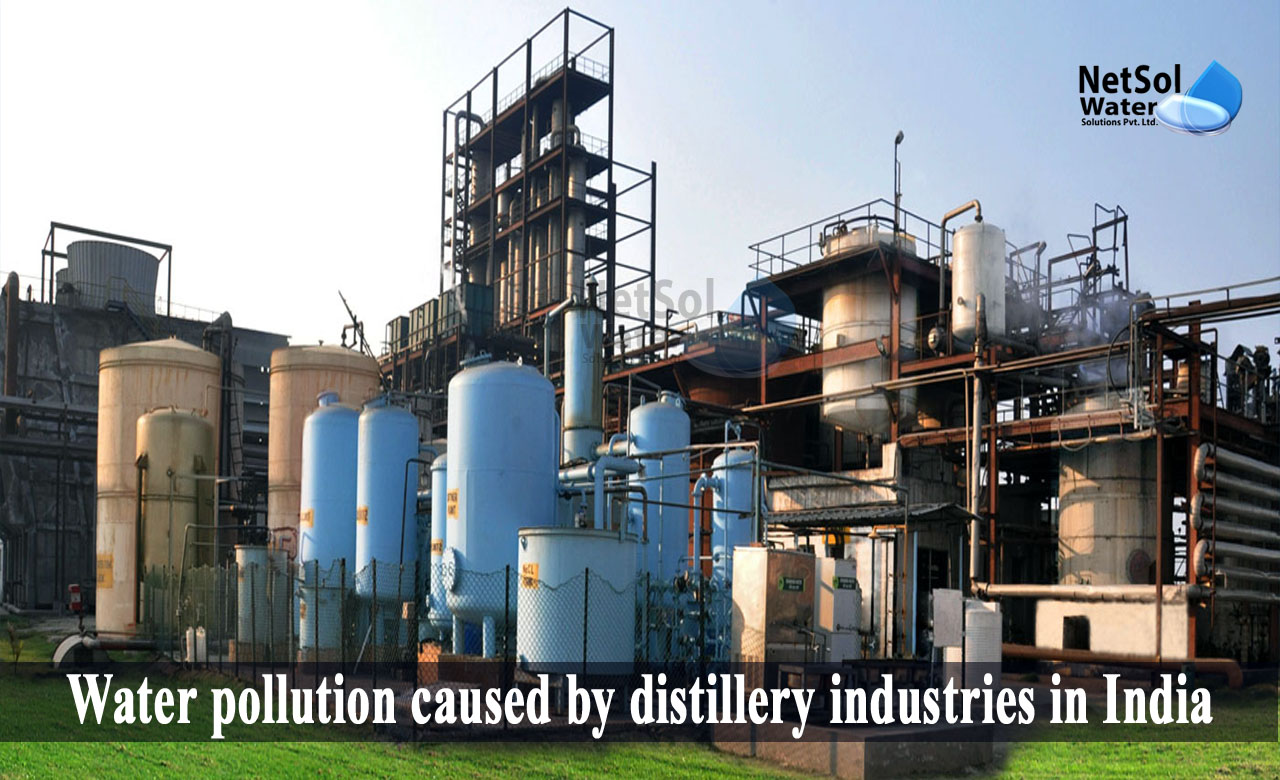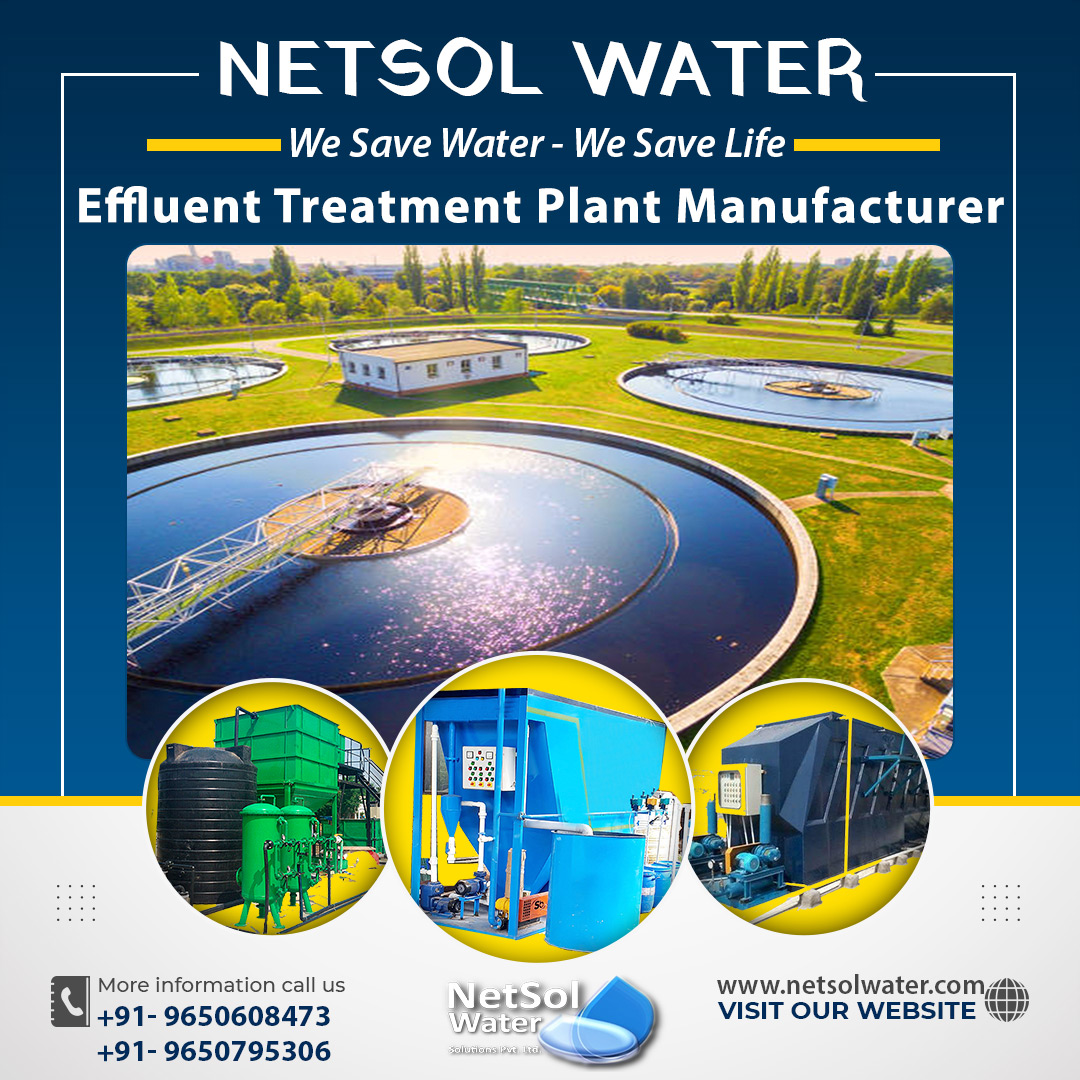Distilleries are agricultural industries that use agricultural products as raw materials, such as sugar cane juice, sugar cane molasses, sugar beet molasses, corn, wheat, cassava, rice, and barley. Treatment of this stream using conventional methods is difficult due to the large volume of effluent, and the presence of certain recalcitrant compounds.
Let’s see the effect of water pollution caused by distillery industries in India, and their effective treatment.
Need of water in distillery industry
In the distillery industry, use of water is critical. It is used at all stages of manufacturing, including cleaning and washing, disinfection, heating and cooling.
Water consumption is high, but reuse is frequently possible by implementing ultrafiltration and reverse osmosis steps.
Production of wastewater
Distilleries are high-polluting industries that generate large amounts of spent wash. Pollutant and colour removal from distillery effluent is becoming increasingly important, as this effluent causes widespread soil and water pollution due to high BOD and COD levels, and the presence of toxic materials such as phenolic compounds.
Distillery wastewater can also have extremely low pH. Water is produced at several stages of the distillation process, including distillation, condenser cooling, fermenter cooling, fermentation, and washing. The distillation and condenser cooling stages produce the majority of this effluent. The feedstock used determines the characteristics of the wastewater produced.
Environmental impact of distillery industries’ wastewater
Due to very high chemical oxygen demand (COD) and biological oxygen demand (BOD), it inhibits seed germination and depletes vegetation in agricultural land, by reducing soil alkalinity and manganese availability, whereas, in aquatic environments, it minimizes sunlight penetration and decreases photosynthetic activity and dissolved oxygen content, harming both aquatic fauna and flora.
Distillery wastewater pollutes the soil and has been shown to inhibit seed germination and decrease soil alkalinity. It also has an impact on farm animals. They drink it, which leads to increased livestock mortality, poor health, and decreased milk yield. Even people who live in distillery wastewater-polluted areas suffer from skin allergies, headaches, vomiting sensations, itchy eyes, fever, and stomach pain.
How to solve Water pollution caused by distillery industries?
· Anaerobic Treatment
Anaerobic digestion is a natural process in which anaerobic microorganisms, consume organic matter and convert it to biogas, making it more appealing than aerobic treatment.
The process is carried out by a vast ecosystem in which physiologically distinct groups, of microorganisms function and interact with one another.
· Aerobic Treatment
Although, the main disadvantage of aerobic processes for distillery stillage treatment is high energy consumption, these processes are widely used due to their high efficiency and ease of use. They are used as a pretreatment as well as a final treatment.
· Coagulation/Flocculation
Coagulation is the agglomeration of suspended particles in wastewater by inorganic coagulants, such as iron, aluminium, or copper sulphates and chlorides, or bio-flocculants.
Chemical coagulation is an effective pretreatment process when used prior to biological or membrane treatment processes, or as a final polishing treatment to remove non-biodegradable organic matter from distillery by-products.
· Adsorption
Adsorption on activated carbon (AC) is used to eliminate colour and specific organic pollutants. Adsorption technology efficiency is determined by adsorbent pore volumes, which influence the reactions between adsorbate and adsorbent, the nature of the adsorbent, and the type of activating agent and activation conditions.
· Membrane Treatment
Membrane processes are widely regarded as the most dependable technologies for treating wastewater, from various industries. These are physical processes that use specially designed semi-permeable membranes, to separate the feed stream into permeate and retentate particles based on their molecular size and shape.
Although, there are several membrane treatment methods, pressure-driven membrane filtration is the most appropriate for the treatment of distillery stillage.
Conclusion
The toxicity of distillery wastewater is a major concern around the world. Unfortunately, if released into the environment without proper treatment, it causes serious environmental problems, as well as human and animal health hazards.
Therefore, proper treatment for the wastewater produced by distilleries is important.
How can we assist?
Netsol Water has aided in the resolution of hundreds of water-related problems, by utilizing a wide range of specialized water treatment and wastewater treatment technologies, in many distilleries of India.




